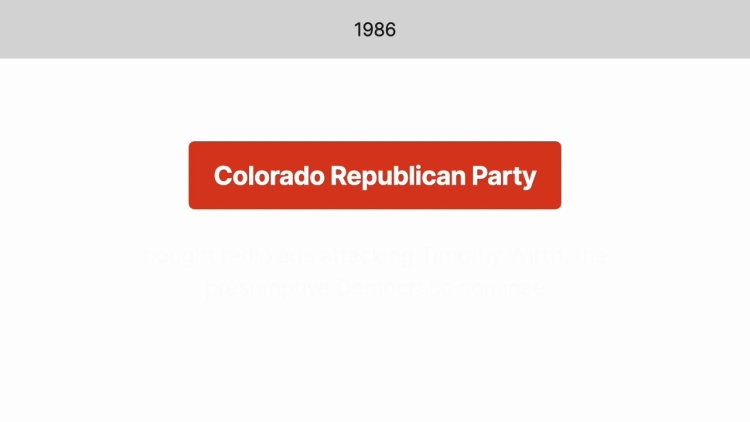Colorado Republican Federal Campaign Committee v. Federal Election Commission (Colorado Republican I)
United States Supreme Court
518 U.S. 604 (1996)
- Written by Philip Glass, JD
Facts
The Federal Election Campaign Act of 1971 (FECA) limited campaign-coordinated political-party spending. This regulation aimed to combat political corruption without impeding speech rights. The Colorado Republican Party ran a series of attack ads in April 1986. These ads targeted Timothy Wirth, the probable candidate of the Democratic Party. When these expenditures occurred, the Colorado Republican Party had not yet nominated a candidate. These ads would ostensibly benefit a prospective Colorado Republican Party candidate. However, the Colorado Republican Party did not, and could not, cooperate with any candidate’s campaign in creating these ads. The amount spent on these ads overstepped FECA’s limits on coordinated spending. The district court ruled that the Colorado Republican Party engaged in coordinated spending. The Court heard this appeal challenging the district court’s ruling in favor of the Federal Election Commission (FEC). The Colorado Republican Federal Campaign Committee (plaintiff) asserted that its spending was independent. Thus, spending restrictions would violate its speech rights.
Rule of Law
Issue
Holding and Reasoning (Breyer, J.)
Concurrence/Dissent (Kennedy, J.)
Concurrence/Dissent (Thomas, J.)
Dissent (Stevens, J.)
What to do next…
Here's why 907,000 law students have relied on our case briefs:
- Written by law professors and practitioners, not other law students. 47,100 briefs, keyed to 996 casebooks. Top-notch customer support.
- The right amount of information, includes the facts, issues, rule of law, holding and reasoning, and any concurrences and dissents.
- Access in your classes, works on your mobile and tablet. Massive library of related video lessons and high quality multiple-choice questions.
- Easy to use, uniform format for every case brief. Written in plain English, not in legalese. Our briefs summarize and simplify; they don’t just repeat the court’s language.





